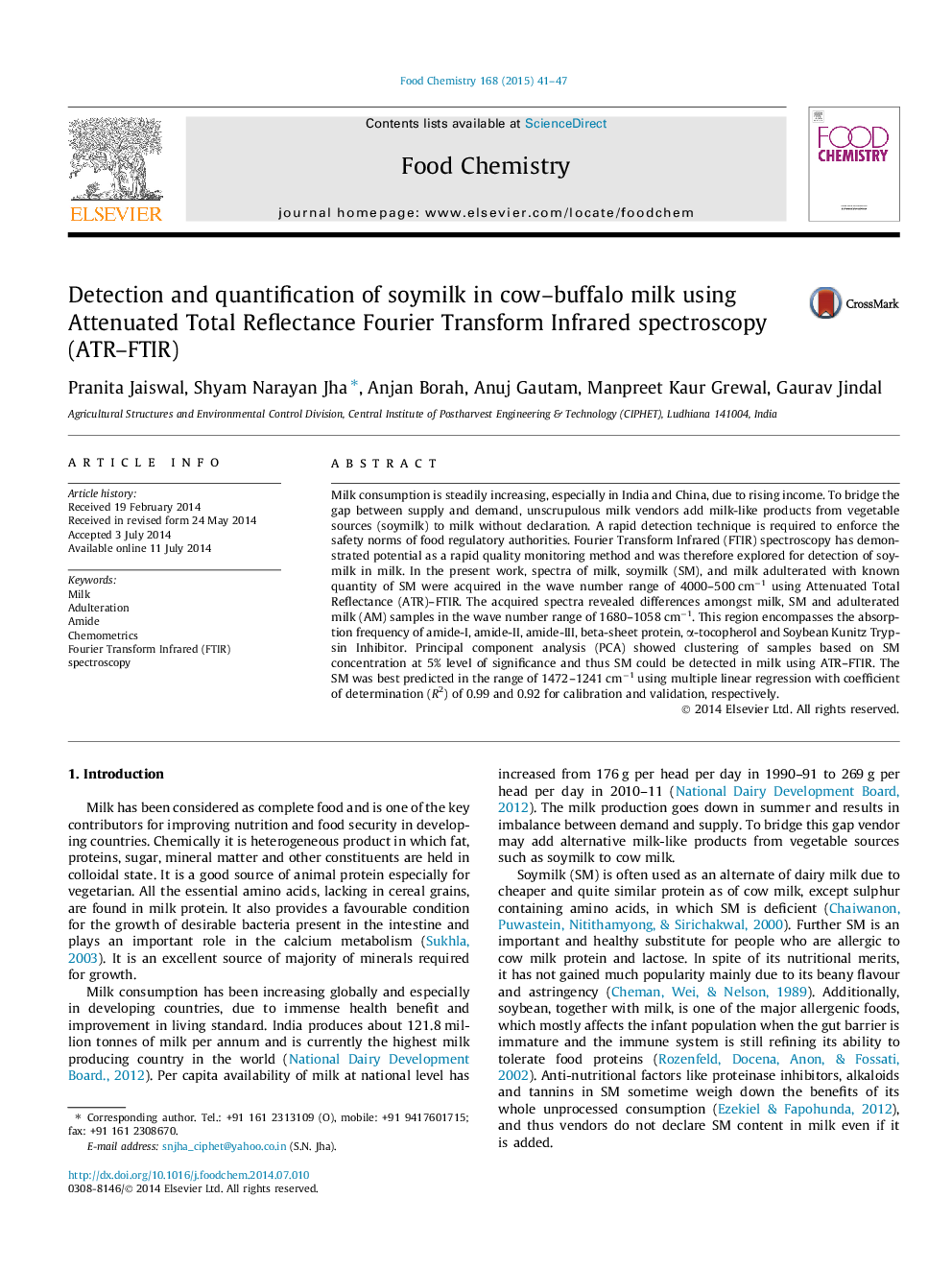| Article ID | Journal | Published Year | Pages | File Type |
|---|---|---|---|---|
| 7594913 | Food Chemistry | 2015 | 7 Pages |
Abstract
Milk consumption is steadily increasing, especially in India and China, due to rising income. To bridge the gap between supply and demand, unscrupulous milk vendors add milk-like products from vegetable sources (soymilk) to milk without declaration. A rapid detection technique is required to enforce the safety norms of food regulatory authorities. Fourier Transform Infrared (FTIR) spectroscopy has demonstrated potential as a rapid quality monitoring method and was therefore explored for detection of soymilk in milk. In the present work, spectra of milk, soymilk (SM), and milk adulterated with known quantity of SM were acquired in the wave number range of 4000-500 cmâ1 using Attenuated Total Reflectance (ATR)-FTIR. The acquired spectra revealed differences amongst milk, SM and adulterated milk (AM) samples in the wave number range of 1680-1058 cmâ1. This region encompasses the absorption frequency of amide-I, amide-II, amide-III, beta-sheet protein, α-tocopherol and Soybean Kunitz Trypsin Inhibitor. Principal component analysis (PCA) showed clustering of samples based on SM concentration at 5% level of significance and thus SM could be detected in milk using ATR-FTIR. The SM was best predicted in the range of 1472-1241 cmâ1 using multiple linear regression with coefficient of determination (R2) of 0.99 and 0.92 for calibration and validation, respectively.
Related Topics
Physical Sciences and Engineering
Chemistry
Analytical Chemistry
Authors
Pranita Jaiswal, Shyam Narayan Jha, Anjan Borah, Anuj Gautam, Manpreet Kaur Grewal, Gaurav Jindal,
